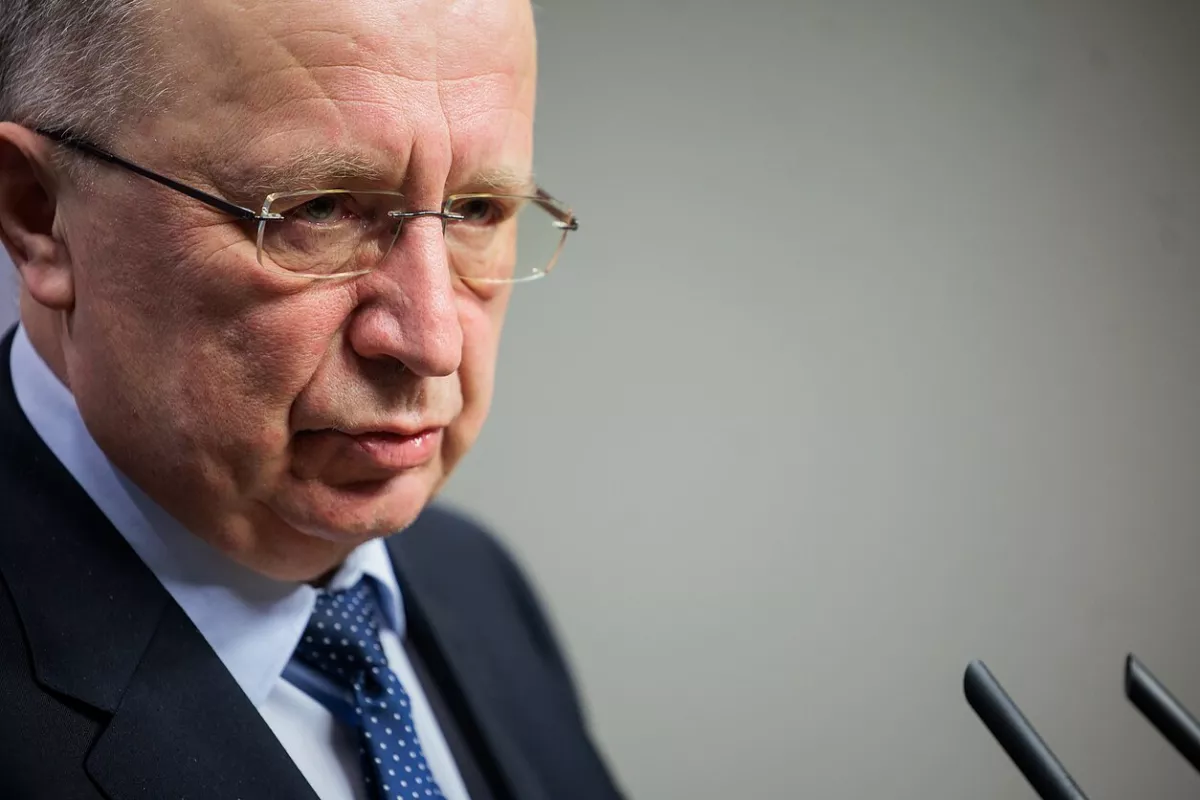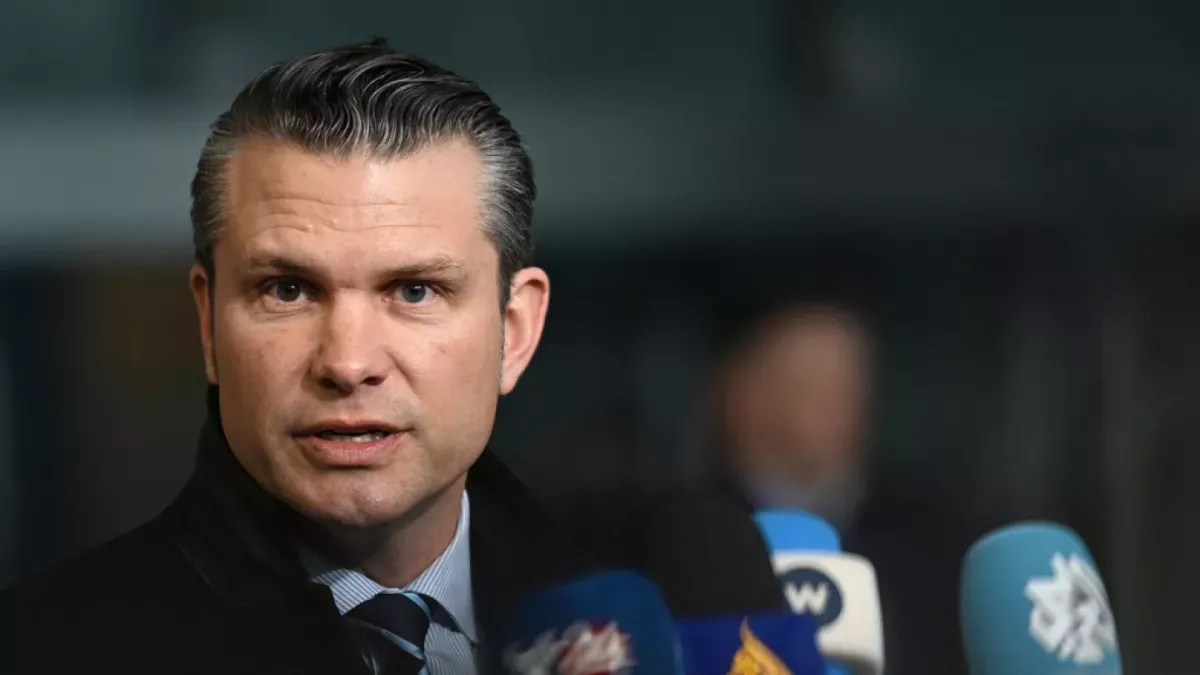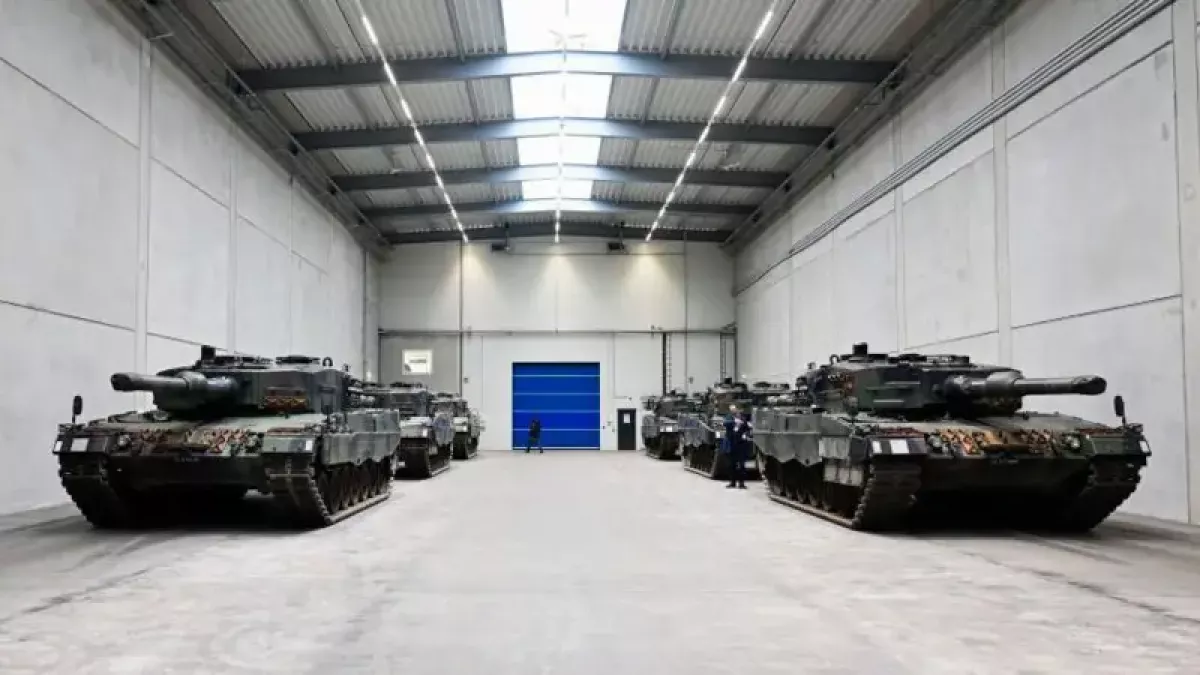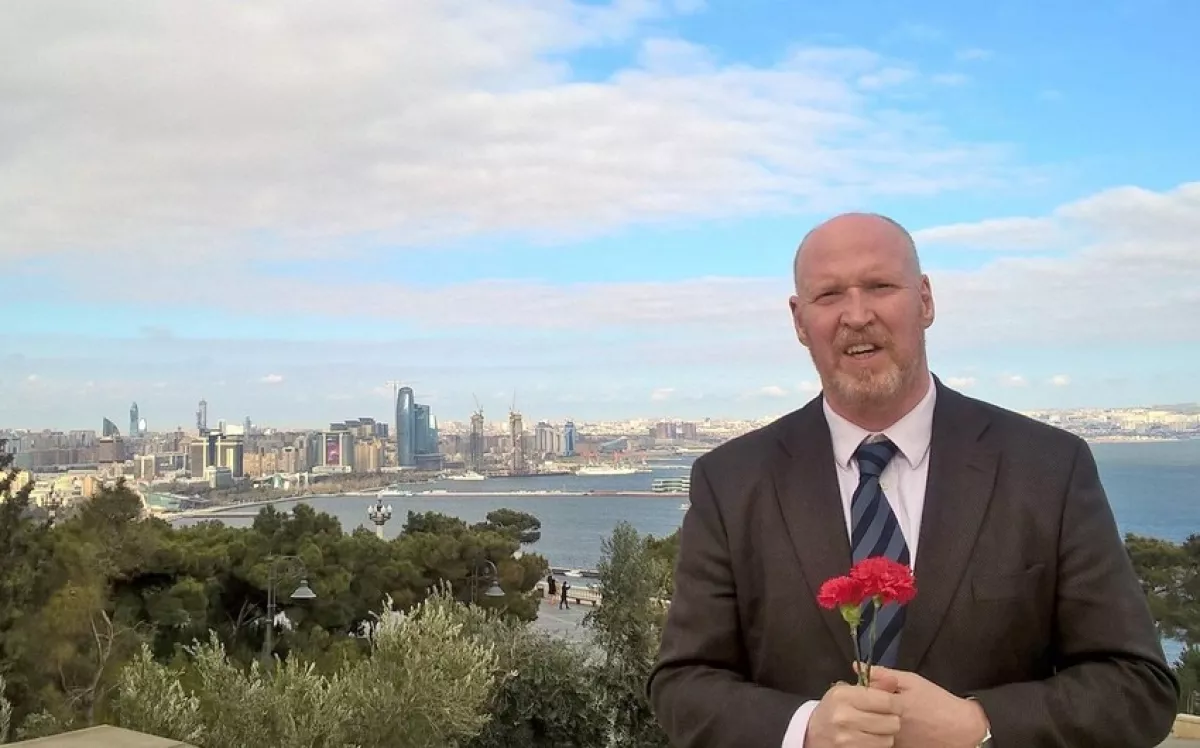"Without the US, Europe can talk but cannot act" Experts highlight EU’s strategic weakness
The United States plans to participate less and less in ensuring Europe’s security in the future. The responsibility for this should be taken on by the European Union itself. For this, a "clear plan" is necessary — Europe must define for itself exactly what it wants from the USA. According to the European Commissioner for Defence, Andrius Kubilius, the leaders of the EU countries must realize that the US involvement in the continent’s defence is "steadily declining."

“In the long-term perspective, naturally, the American presence in European defence is likely to become smaller, as the Americans concentrate more on the Indo-Pacific,” he said in an interview with Lithuanian broadcaster LRT.
According to Kubilius, European states need to start preparing by fulfilling their obligations to invest in their own defence, which requires strategic understanding and “real decisions” from EU leaders. He emphasised that only 20% of defence procurement by EU countries comes from European industry, while 65% of weapons are supplied from the US. At the same time, he acknowledged that there are products "we do not produce in Europe" and will be forced to buy from outside.
“And it is better for us to come up with a clear plan of what we want from the Americans over the next decade, avoid chaos, than to be constantly begging them [the USA - ed.] to stay,” the European Commissioner said, adding that this will help avoid chaos in case of a reduction in American military presence.

Let us recall that in April, Pentagon chief Pete Hegseth stated that the United States has not yet made a decision regarding the level of its future military presence in Europe. This issue will be decided, among other factors, based on the outcomes of negotiations between Washington and Moscow. Later, U.S. President Donald Trump hinted at a possible reduction of the American armed forces contingent in Europe.
Earlier, NBC News, citing American and European officials, reported that the Pentagon is considering withdrawing up to 10,000 troops from Eastern Europe — half of the deployment that the previous U.S. administration sent in 2022 to countries bordering Ukraine.
How likely is it that the U.S. will indeed gradually reduce its presence in European defence, and is the EU capable of reaching a consolidated decision? What should the EU’s “clear plan” of action be if America decides to withdraw its troops and weaponry?
Well-known international analysts shared their views with Caliber.Az.

Matthew Blackburn, an expert at the Norwegian Institute of International Affairs and a researcher at the Institute for Russian and Eurasian Studies at Uppsala University, believes that Europe needs “statecraft and strategic thinking, not instinctive emotional rhetoric and moral panic.”
“The weakness of Europe has never been more evident. NATO Secretary General Mark Rutte calls for a rapid increase in defence spending, assuming that European GDP can be swiftly converted into an effective military force. This ignores the real circumstances. Europe is incapable of ramping up defence production in time to turn the situation around.
Independent reports highlight the dire condition of European armies, suffering not only from a shortage of trained soldiers but also from a lack of weaponry. Creating a European army without U.S. support is an unprecedented task that will take decades. Disagreements among European leaders point to deeper structural problems.
Europe can talk but cannot act. Without strength and a unified plan, it is unable to resist. Meanwhile, European taxpayers are asked to sacrifice for defence despite economic difficulties and recession.
The time has come for strategic reconsideration. Europe should reassess its relations with several countries. Yes, defence deterrence is necessary, but it is important to remember that the EU’s main achievement is 80 years of peace and prosperity. That should be the target trajectory. The statements by Trump, Hegseth, and Kellogg are bitter pills, but for Europe, they are a necessary prescription.
Instead of unconvincing displays of strength, Europe must establish cooperation with the Trump administration,” the analyst is confident.
He also emphasises that “the primary issue is the formation of a European army and its capacity to deter threats from the east.” Analysts from the Centre for European Policy Analysis propose deploying forces numbering more than 30,000 troops with NATO support, electronic warfare capabilities, and intelligence platforms.
“For basic deterrence, according to the Bruegel report, Europe needs to form an army of 300,000 soldiers. This will require the reinstatement of conscription and the recruitment of contract soldiers. Even with sufficient personnel, questions remain about the command structure. NATO has always been based on American leadership in strategy and logistics. Building a new multinational command system without the U.S. is an unprecedented task.
The new structure will not have access to American intelligence systems. Currently, the EU has only ten military satellites, while a significant portion of U.S. ISR (Intelligence, Surveillance, and Reconnaissance) capabilities are space-based. European generals are, in essence, unprepared to command troops in an interstate conflict.

Military production in the EU is decentralised and privatised, making war extremely expensive. Private contractors set high prices: Rheinmetall, for example, sells 30mm rounds at $1,000 each. Europe may simply not be able to afford such costs.
Equipment shortages are widespread. Boxer combat vehicle production is limited to 200 units per year. Europe has only about 2,900 modern tanks. Air defence is also a weak spot. IRIS-T and NASAMS are incapable of intercepting ballistic missiles. SAMP/T can, but it is produced in limited quantities. The cost of Aster missiles is $5–5.5 million, which is higher than American counterparts.
EU leaders place their hopes on increasing defence budgets but avoid discussing systemic problems. Europe remains in a reactive position, chronically lagging behind events. This is the consequence of years of dependence on the United States. The European elites have lost the skill of strategic thinking on matters of hard security. Europe is not a unified strategic actor, but a rudderless ship.
Although militarisation is being pushed by certain influential circles, the European coalition is still too weak. Most likely, European leaders will continue to yield to the U.S. Between loud statements and reality lies a chasm that sooner or later will have to be bridged. The refusal to engage in honest dialogue may be an attempt to postpone the disintegration of unity or simply a reflection of fear.
Although it may be painful, the way out of Europe’s fear and indecision is diplomacy and compromise,” Blackburn concludes.

Irish political scientist and historian Patrick Walsh reminds us that it was Donald Trump who initiated the "pivot to the East" back in 2016.
“Trump took seriously the view that China — which grew on American capital — represents the primary threat to U.S. hegemony. In this context, the confrontation with Russia was seen as distracting and costly.
Washington was spending attention and resources on places like Ukraine when it should have focused on containing the rise of Chinese power and influence in Southeast Asia. Trump tried to reorient the U.S., but at every turn he was thwarted by the ‘swamp’ he sought to drain and the foreign policy ‘entanglement’ organised to counter Russia. Trump became entangled in legal battles and impeachment proceedings and ultimately failed. Two years after his electoral defeat by Biden, the Ukrainian conflict — which Trump was unable to stop — escalated into a full-scale war involving the Russian army.
In his second term, he intends to complete what he was unable to finish earlier. Europeans will have to accept the fact that the United States no longer wants to bear the military and financial burden, whether they like it or not. After a brief attempt by London to take the lead with a ‘coalition of the willing,’ it now seems that Germany is taking the initiative.
Trump is undoubtedly satisfied — despite not having stopped the war in Ukraine as he promised. However, the troop withdrawal from Europe is proceeding according to plan. This is part of the strategy.
But transferring responsibility to Europe carries risks. Washington has always restrained the war. There are concerns that the EU will allow Ukraine to use long-range missiles on Russian territory. This could be provocative and dangerous. Moscow’s response may include the use of so-called ‘reserve forces.’ This could disrupt Trump’s plans and draw the U.S. back into the conflict.
Therefore, stepping back from Ukraine may not be such a simple alternative to negotiations for a ceasefire and settlement,” Walsh believes.








